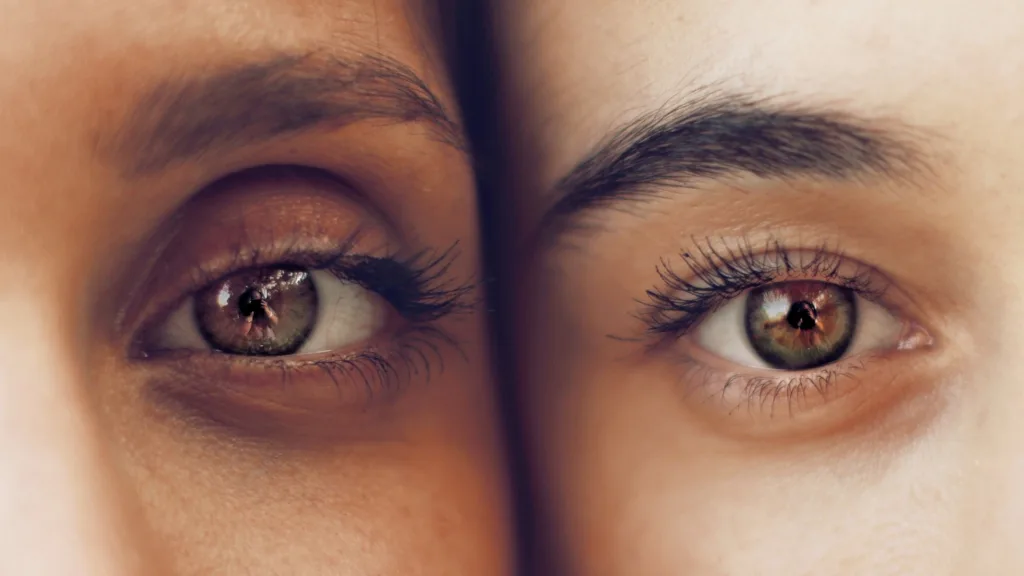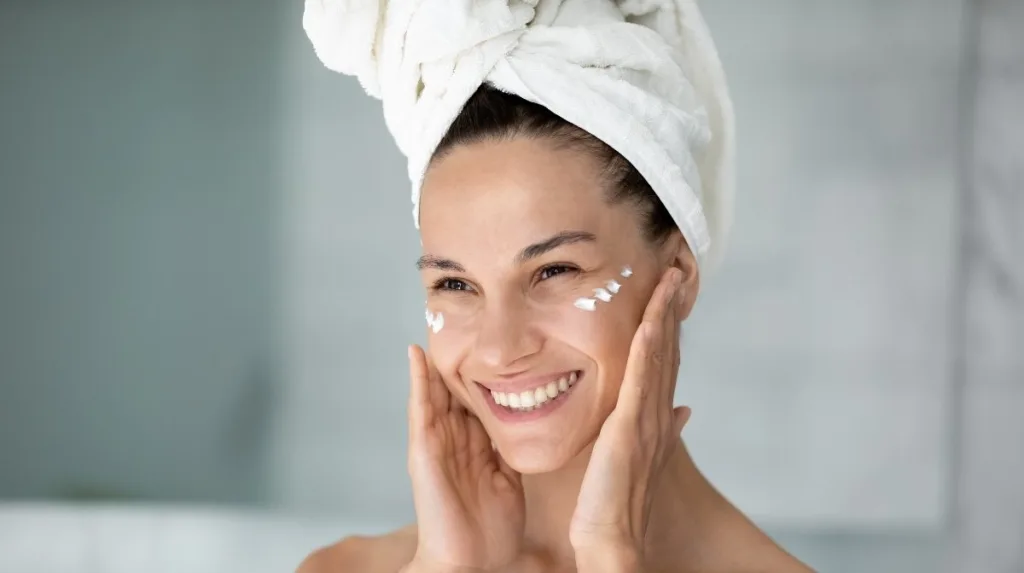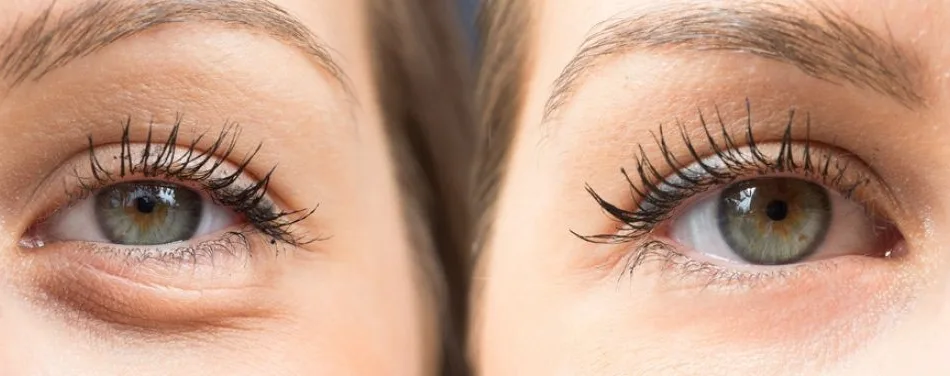Dark circles under the eyes can result from various factors such as aging, genetics, and fatigue. Typically, they do not indicate a medical issue but are more often a cosmetic concern. While not usually a cause for worry, you might be inclined to reduce their visibility for aesthetic reasons. The presence of dark circles implies a darkened appearance of the skin below your eyes, exhibiting shades like blue, purple, brown, or black, influenced by your inherent skin tone. This discoloration can contribute to a tired or older appearance. To address dark circles at home, consider six simple and non-invasive remedies. These methods can be effective in minimizing the appearance of dark circles without resorting to medical interventions.

Cold Compress:
A cold compress is a quick and easy remedy to reduce the appearance of dark circles. Applying a cold compress constricts blood vessels, which can help minimize the dark discoloration. You can use a cold spoon, a chilled cucumber slice, or a damp cloth soaked in cold water. Gently press the compress against the under-eye area for about 10 minutes. This can also help alleviate puffiness.
Tea Bags:
Caffeine in tea contains antioxidants and can help stimulate blood circulation, reducing the appearance of dark circles. After steeping two tea bags (preferably green tea or chamomile) in hot water, let them cool down. Place the cooled tea bags over your closed eyes for 15-20 minutes. The anti-inflammatory properties of tea can help soothe the under eye area.
Topical Vitamin C Serum:
Vitamin C is known for its skin-brightening properties and can be beneficial in reducing dark circles. Apply a small amount of a vitamin C serum to the under-eye area before bed. Vitamin C helps in collagen production, which may contribute to skin firmness and brightness. Ensure the serum is suitable for the delicate skin around the eyes. Ensuring a well-balanced diet rich in vitamins and minerals is crucial for maintaining skin health. Foods high in antioxidants, like berries, spinach, and nuts, can combat oxidative stress and promote skin rejuvenation. Additionally, staying hydrated by consuming an adequate amount of water can prevent dehydration-related dark circles.
Hydration and Lifestyle Changes:
Dehydration can exacerbate the appearance of dark circles. Ensure you are well-hydrated by drinking an adequate amount of water throughout the day. Additionally, adopt a healthy lifestyle with sufficient sleep, a balanced diet rich in fruits and vegetables, and regular exercise. Lack of sleep and an unhealthy diet can contribute to dark circles, so addressing these factors can make a noticeable difference over time.
It’s essential to note that individual responses to these treatments may vary, and consistent application is often key to seeing improvement. If dark circles persist or worsen, it’s advisable to consult with a dermatologist or healthcare professional for personalized advice and potential underlying causes.
Get more sleep:
Try to get at least seven hours of sleep each night to prevent shadows from appearing around your eyes. Beyond ensuring an adequate quantity of sleep, focusing on sleep quality is essential. Creating a consistent sleep schedule, maintaining a comfortable sleeping environment, and practicing relaxation techniques like meditation or deep breathing exercises can contribute to better sleep and subsequently reduce dark circles.
Facials:
Facials that include massage around the eye area can help improve circulation. Traditional Chinese Medicine recommends acupressure techniques to improve blood circulation and reduce dark circles. Gently massaging specific pressure points around the eyes can stimulate lymphatic drainage and alleviate puffiness. Incorporating facial exercises, such as facial yoga, may also tighten the skin around the eyes, reducing the appearance of dark circles over time.
Eye Cream:
The way you apply your eye cream can significantly impact its effectiveness. Gently tap the product into the skin using your ring finger, as this finger exerts the least pressure, ensuring a delicate application. Enter the realm of eye creams, specifically formulated to address this issue. These specialized potions have become a staple in skincare routines, promising to rejuvenate and brighten the under-eye area. Eye creams can also help to maintain healthy circulation to prevent puffiness. It’s a formulation for mature skin, it should be able to stimulate cells for collagen, to help tighten and strengthen the skin.

What causes dark circles under your eyes?
Dark circles under your eyes can happen for many reasons. One of the most common causes of dark circles is aging. As you age, the skin below your eyes begins to loosen and thin out so the blood vessels under your skin may become more visible. This can darken the appearance of your under eyes. Hollowed areas called tear troughs may develop as well. Tear troughs cause shadows that increase the appearance of puffy eyes.
Other causes of dark circles under your eyes may include:
-
Genetics:
Genetic factors play a significant role in the development of dark circles. If your parents or other family members have dark circles, you may be more predisposed to them. -
Dermatitis:
Eczema and contact dermatitis can cause the blood vessels under your eyes to dilate and show through your skin. Individuals with a history of atopic dermatitis, commonly known as eczema, may experience flare-ups around the eyes. The persistent itching and scratching can lead to inflammation and dark circles over time. -
Rubbing your eyes:
Persistent rubbing or scratching of the eyes can irritate the delicate skin and lead to inflammation and dark circles. Breaking the habit of rubbing your eyes requires conscious effort and awareness. Encouraging alternative ways to relieve eye discomfort, such as using a cool compress or practicing aware relaxation techniques, can contribute to maintaining the health and appearance of the skin around the eyes. Overall, understanding the potential consequences of eye rubbing and adopting preventive measures can play a crucial role in minimizing the development of dark circles. -
Lack of sleep:
Poor sleeping habits cause the skin under your eyes to appear pale. Your blood vessels can easily show through your skin. Adopting healthy sleep habits, such as maintaining a consistent sleep schedule and ensuring an adequate amount of rest each night, can be instrumental in reducing the occurrence and severity of dark circles. In addition to sleep, staying hydrated, managing stress, and incorporating a balanced diet into one's lifestyle can contribute to overall skin health and help diminish the appearance of dark circles over time. -
Hyper pigmentation:
Too much exposure to the sun triggers your body to make more melanin. Melanin is the substance (pigment) that gives your skin its color. The skin under the eyes is particularly prone to hyper pigmentation due to its thin and delicate nature. Various factors can trigger this condition, with one of the primary causes being an overproduction of melanin in response to inflammation or damage. -
Dehydration:
The skin under your eyes can start to look dull when you don’t drink enough water. To counteract the effects of dehydration on dark circles, it is essential to maintain proper hydration levels. Drinking an adequate amount of water throughout the day helps ensure optimal bodily functions, including blood circulation and toxin elimination. The recommended daily water intake varies for individuals based on factors such as age, weight, and activity level, but a general guideline is to aim for at least eight 8-ounce glasses of water per day. When the body is dehydrated, it affects the blood circulation, causing the blood vessels under the thin skin around the eyes to contract. -
Lifestyle factors:
Other factors such as stress, excessive alcohol use and smoking can cause dark circles under your eyes. -
Allergies:
Allergic reactions can lead to inflammation and swelling in the delicate skin under the eyes, creating shadows and dark circles. -
Medical Conditions:
Certain underlying health issues, such as thyroid disorders, anemia, or liver problems, can manifest as dark circles under the eyes. It's essential to address any medical conditions with the guidance of a healthcare professional. -
Poor Skincare practice:
Inadequate skincare practices, such as not removing makeup before bedtime or using expired products, can irritate the delicate skin around the eyes, leading to dermatitis and dark circles. Dark circles are not solely the result of genetic factors or lack of sleep; poor skincare habits also contribute significantly to their onset. Prioritizing neatness, sun protection, and using gentle products, along with maintaining good sleep hygiene and promoting healthy blood circulation, can go a long way in preventing and minimizing the appearance of dark circles.

How can dark circles under my eyes be prevented?
Dark circles under your eyes can’t always be prevented. But there are some changes you can make that may help. These changes include:
-
Use sun protection:
Don’t forget to put sunscreen on your face, especially around your eyes. And wear sunglasses. -
Adjust your sleep schedule:
Get to bed on time, and make sure to get at least seven hours of sleep each night. -
Reduce your stress:
Find healthy ways to manage your stress, such as scheduling time for self-care. -
Cut down on drinking:
Drinking too much alcohol can cause reduced circulation. -
Quit smoking:
Smoking speeds up the aging process your skin goes through.

